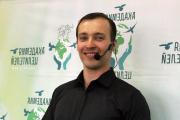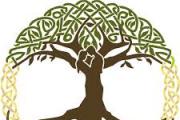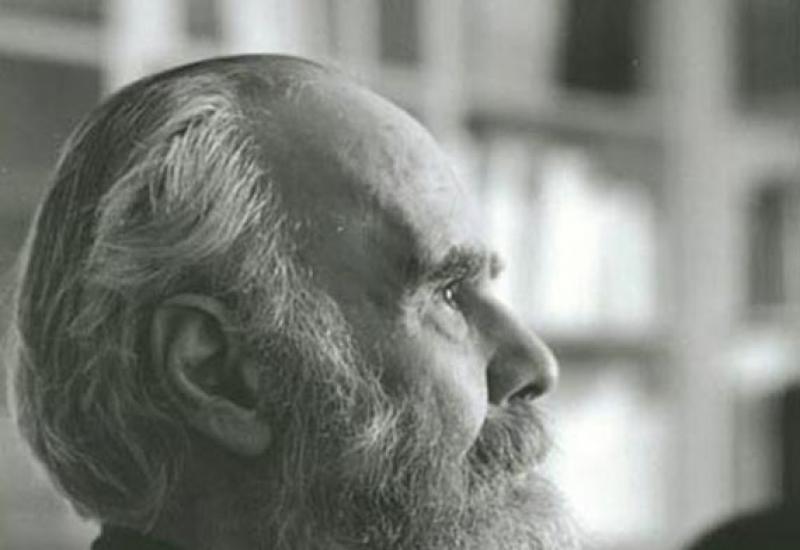Development of individuality and personal qualities. Development of personal qualities ©. What is the difference between skills and personality traits?
Formation of personality qualities - systemic educational influences leading to the desired sustainable behavior. Almost the same as upbringing personality traits. For example, education of responsibility, education of independence, education of adulthood...
It should be taken into account that, starting from the 80s of the twentieth century in the Soviet Union and further in Russia, the word “formation” was, in fact, included in the list of forbidden words both in pedagogy and psychology. “Formation” began to be considered strictly tied to the “subject-object” approach, excluding the internal activity of the individual, and therefore an unacceptable approach. It is allowed and recommended to talk about the “development of personality traits”, since this more reflects the “subject-subject” approach, namely the assumption that the child always cooperates with the adult in the matter of his growth and development.
What needs to be formed
Children and adults begin to behave as they should, as required of them, when they have for this:
- necessary experience, skills and abilities,
Teach, give examples, support. Particular attention is paid to the age of maximum susceptibility.
- the desired behavior has become habitual for them,
To do this, the person (child) must be involved in life and activities where exactly this behavior occurs. Sometimes this can be ensured by psychological methods, sometimes by administrative ones. It is better if this is ensured by soft and flexible methods, but if necessary, methods can also be forceful and hard.
- they have an interest or benefit in behaving the way we want,
Persuasion helps, drawing attention to the benefits of the behavior we need. And also creating situations where such interest appears.
- they have corresponding life values: “This is how you should be, this is how it is good to be.”
Samples and suggestions
- they have a belief (beliefs) that this is how they should behave in a given situation,
Samples and suggestions
- they have a personal self-identification “I am the one for whom such behavior is natural! I manage to be like that!”
Initiation
- the desired behavior of the child (adult) receives reinforcement and support.
Public opinion and training
The basic, or basic, qualities of a person are understood as those that, starting to take shape in early childhood, are quickly consolidated and form a stable individuality of a person, defined through the concept of a social type, or character, of a person. These are fundamental personality traits, dominant motives and needs, and other properties by which a person can be recognized many years later. Such qualities differ from other personal properties of a person in that their origins go back to infancy and early childhood, and the prerequisites for their formation take shape during that period of a child’s life when he does not yet speak. The vital stability of these qualities is explained, in particular, by the fact that in the initial period of formation of these properties the child’s brain is still immature, and its ability to differentiate stimuli is not sufficiently developed.
Basic personal qualities differ from others in that their development - at least in the initial period - to a certain extent depends on the genotypic, biologically determined properties of the organism. Such personal qualities include, for example, extraversion (focusing attention on the outside world) and introversion (focusing attention on the inner world), anxiety and trust, emotionality and sociability, neuroticism and others. They are formed and consolidated in a child in preschool age, under conditions of complex interaction of many factors: genotype and environment, consciousness and the unconscious, operant and conditioned reflex learning, imitation and a number of others.
A child’s self-esteem and awareness of the demands placed on him appear around the age of three or four years, based on comparing himself with other people. On the threshold of school, a new level of self-awareness and volitional regulation of behavior arises. It is characterized by the development in the child of his “internal position” - a fairly stable system of relationships towards himself, towards people, and towards the world around him. “The emergence of such a neoplasm,” writes L. I. Bozhovich, “becomes a turning point throughout the entire ontogenetic development of the child.”
The child’s internal position subsequently becomes the starting point for the emergence and development of many other, in particular strong-willed, personality traits in which his independence, perseverance, independence and determination are manifested.
Awareness of oneself as an individual comes to a child at the age of about two years. At this time, children recognize their face in the mirror and in photographs and say their own name. Until the age of seven, a child characterizes himself mainly from the outside, without separating his inner world from the description of behavior. Emerging self-awareness, when it reaches a sufficiently high level, leads to the emergence in children of a tendency to introspection, to taking responsibility for what happens to them and around them. There is a pronounced desire of the child in any situation to do everything possible in order to achieve the set goal.
The process of personality development and improvement of a child’s behavior based on direct imitation of people around him, especially adults and peers, becomes very noticeable in preschool age. We can say that this age represents a sensitive (most favorable) period in the development of personality based on imitation, accompanied by the consolidation of observed forms of behavior, initially in the form of external imitative reactions, and then in the form of demonstrated personality qualities. Being initially one of the learning mechanisms, imitation can then become a stable and useful quality of a child’s personality, the essence of which lies in the constant readiness to see the positive in people, reproduce and assimilate it. True, imitation at this age does not yet possess special moral and ethical selectivity, so children can assimilate both good and bad behavior patterns with equal ease.
In early and middle preschool childhood, the formation of the child’s character continues. It develops under the influence of the characteristic behavior of adults observed by children. During these same years, such important personal qualities as initiative, will, and independence begin to take shape.
In older preschool age, the child learns to communicate and interact with people around him in joint activities with them, learns the basic rules and norms of group behavior, which allows him in the future to get along well with people and establish normal business and personal relationships with them.
In children, starting from about three years of age, the desire for independence is clearly manifested. Being unable to realize it in the complex, inaccessible life of adults, children are usually content with defending their independence in play. Modern toys are substitutes for those objects that a child will have to encounter in real life as he grows up.
By middle preschool age, many children develop the skill and ability to correctly evaluate themselves, their successes, failures, and personal qualities, not only in play, but also in other types of activities: learning, work and communication. Such an achievement should be considered as another step towards ensuring normal schooling in the future, since with the beginning of schooling the child constantly has to evaluate himself in various types of activities, and if his self-esteem turns out to be inadequate, then self-improvement in this type of activity is usually delayed.
A special role in planning and predicting the results of a child’s personal development is played by the idea of how children of different ages perceive and evaluate their parents. Those parents who are good role models and at the same time evoke a positive attitude towards the child are able to have the strongest influence on his psychology and behavior. Some studies have found that children between the ages of three and eight experience the most significant influence from parents, with some differences between boys and girls. Thus, girls begin to feel the psychological influence of their parents earlier and last longer than boys. This time period covers years from three to eight years. As for boys, they change significantly under the influence of their parents in the period from five to seven years, i.e. three years less.
A skill is a skill developed through repeated repetition, a formed ability that allows you to achieve results in a certain type of activity. Human skills are purely acquired; any activity must be learned. There are no people born with any skill, but definitely, each of us has more inclinations to develop some skills and less to develop others. For some it is easier to learn to draw or dance, for others to program, and for others the fastest way will be to master languages or play a musical instrument.
Personal skills are a set of individual skills needed to live in modern society. They help us cope with any daily tasks, interact with others and live a productive and fulfilling life.
Of great value to a person are also his professional skills, which make him an expert in any field, and help him, having mastered a certain profession, find a good job, earn money, and benefit society.
In addition to personal skills, each person has a set of individual personal qualities. The totality of personal skills and personality traits create human character, which to a certain extent is inherent in us from birth, but is also formed and changed under the influence of the external environment and life circumstances. In many ways, this determines our future priorities and creates the foundation for what our lives are likely to be. A person can follow his destined life scenario, or by showing willpower and developing the necessary personal skills and qualities, change it at his own discretion, in accordance with his goals or dreams!
Many experts are convinced that a person’s character is formed in the first five years of his life. Subsequently, the character undergoes only minor adjustments under the influence of external circumstances. But at the age of five, hardly anyone begins to think seriously about what personal skills will help him or her in life. Although there are exceptions. For example, little Wolfgang Amadeus Mozart sat down at the harpsichord at the age of 4 and could have fun for a long time by selecting harmonies. As it turned out later, it was these skills, as well as the development of a phenomenal ear for music, memory and the ability to improvise, that allowed Mozart to become one of the most famous composers in the world.
How do personality development skills help you in life?
Modern society is so complex and multifaceted that it requires hundreds of thousands of skills from different people to function. Just imagine any professional field, such as construction or medicine, and think about how many skills experts in these fields must have to successfully solve everyday problems. And these are just two areas. Now imagine how many professional fields there are in the world, and multiply this number by the required number of skills in each. You probably won't be able to calculate it, but they say the answer is a number of more than ten digits.
The world needs a huge number of personal skills, and if all people agreed among themselves and everyone would develop those skills that are closer to them and help contribute to the common cause, then we would have long ago revealed many of the mysteries of the universe and mastered life in neighboring galaxies.
But for now we have huge social inequality in different countries and growing unemployment. Therefore, your choice regarding which personal and professional skills to develop is very important. This can either make you a sought-after and needed specialist in any country in the world, or provide you with a minimum wage and a small pension. You decide!
Throughout life, we learn new skills and abilities, resulting in a correction of character and life goals. One of the most important qualities that will bring incredible benefits to its owner is skill of systematic planning of one's own life. In other words, it is a person’s ability to stick to a goal. Having this skill allows us to adhere to the lifestyle we dream of building for ourselves, and to develop in those areas that we have chosen for ourselves as priorities.
Mastering new personal skills makes a person comprehensively developed. He learns to react correctly to external stimuli and succeed in his chosen direction, no matter what, as well as to effectively use internal resources. Personal skills determine the success and uniqueness of an individual in many areas of human life. This also applies to the choice of clothing style and mastering a certain profession. A person who clearly understands the need to improve the quality of life will work in a given direction.

What is the difference between skills and personality traits?
To better understand yourself and others, you should pay special attention to studying personality traits. This allows you to better understand the character of other people, and gives you more opportunities to predict their behavior.
Personality qualities are the repeated reactions of a person, i.e. his behavior, which he demonstrates in certain situations, depending on the influence of the external environment and his own motives.
Personal qualities are associated with characteristics of the type of human nervous system, some of them directly depend on temperament, others can be developed through writing, or independent work on oneself.
Let's look at examples of skills and personality traits that are the most useful and that employers most often look for in candidates:
| Personality skills | Personality qualities |
| – Reading and writing skills
– Skill in working with information – Communication skills – The ability to manage your emotions – The skill of empathy and understanding of other people’s emotions – Planning and goal setting skills – Self-motivation skill – Decision making skills – Active listening skills – Teamwork skills – Public speaking skills – Relationship building skills – First aid skills – Wild survival skills – Skills in handling money – Foreign language skills – Car driving skills – Multitasking skill – Self-organization skill |
– Calmness
- Self confidence - Responsibility – Punctuality – Goodwill - Politeness – Optimism – Hard work - Attentiveness - Patience – Perseverance – Determination - Stress resistance – Initiative – Energy – Diplomacy – Sociability – Independence |
As you can see, personality traits best reflect who we are, while personality skills reflect what we can do.
How do personal skills develop?
To begin to develop the necessary skills in yourself, it is enough to realize the need to live life at your own discretion, and not according to a script dictated by society or parents.
The formation of personality skills begins in early childhood in the process of interaction with family and society, as well as in the process of self-development. In preschool age, the development of personal skills, to a greater extent, depends on the family and the values accepted in it. In the process of interacting with loved ones, the child begins to consider himself as an individual, learns to make responsible decisions and tries on various patterns of interaction with other people.
The skills and abilities of personality development are most actively mastered at the moment when the child realizes his uniqueness and begins to evaluate his place in the world around him. The start of such processes is evidenced by:
- appropriate and active use of personal pronouns in speech;
- mastering the skills of self-control and self-care (independent self-care);
- the ability to explain one’s experiences and interpret the motivation for one’s actions.

The listed processes allow us to conclude that the active development of a child’s personal skills begins at 3-5 years of age. Until this age, preparations are carried out in the mind of a little person for subsequent work on the formation of his own “I-concept”.
At the initial stage, skills for personality development do not need to be adjusted. It is quite enough to create conditions for the harmonious development of intellectual, emotional and physical abilities. Gradually, the child, in a soft and unobtrusive form, becomes familiar with generally accepted behavioral norms. The family can be considered as an educational environment, which for a long time will be the main one, in terms of character formation, for the child.
In order to successfully develop a child’s personal qualities and form new ones, he should be constantly involved in active and creative activities.
When entering school, the skills of a small personality continue to be formed under the influence of the environment and the authority of adults: educators, coaches, teachers. If the educational process is organized correctly, then the formation and development of the child’s personal qualities occurs in parallel with educational and cognitive activity. Responsibility, creativity and a number of other qualities are laid down in the process of schooling.
The presence of friends and comrades inevitably influences the personal qualities being formed. If a child studies in a class with many brilliant and precocious children, then his own development will be an order of magnitude faster. In elementary school, children learn to interact with each other, with the people around them, choose correct behavior patterns, and look for ways out of difficult situations.
Why is it better to develop professional skills from a young age?
Professional skills of an individual develop in parallel with personal ones. Their selection determines the future field of activity and the possibility of realizing oneself as a good specialist. The sooner you pay attention to your chosen professional field and its skills, the faster you can achieve success in it. Nowadays, more and more often, children who have such an opportunity and aspirations graduate from school as external students, while simultaneously mastering the disciplines chosen for the future, such as foreign languages, computer and gadget skills, programming, finance, marketing, and much more.
Young people are increasingly disillusioned with the school curriculum, and are increasingly realizing the value of professional skills, which they devote a lot of time to, and are making great strides in developing them!
If you look objectively at the existing education system, it is generally not aimed at creating in a person the necessary set of professional and personal skills, making him successful and competitive in the labor market. Rather, education is aimed at mastering basic concepts, instilling dogmas and rules that are convenient to society, and creating an average citizen who will most likely have difficulty finding a job and will have a low market value. And even more so Almost nowhere do they teach how to be a leader, how to create your own business, and they don’t provide the basics of financial literacy, because for many it is much more profitable for a young family to go into debt and take out a mortgage! And the sooner young people realize how useful they really are and want to be, the more successful their professional and personal lives will be.

The formation of personal and professional skills consists of the following stages:
- Determining the future scope of activity, based on personal preferences. An individual chooses not only his path in life, but also his profession.
- Adaptation to conditions of subsequent development. These conditions are initially unknown to the person, so he receives huge amounts of information regarding the work to be done and the qualities necessary to achieve success.
- Stabilization of the learning or development process, obtaining certain practical skills and awareness of the suitability of oneself and the chosen profession. In the future, success will be determined not by natural data, but by the readiness to constantly work on oneself and self-improvement.
- Targeted work on a selected range of personal and professional skills, built on a systematic basis, and ideally, carried out with the support of experienced mentors, mentors or coaches who help track the dynamics of development of the entire set of skills and provide high-quality developmental feedback.
An effective tool for helping young people go through these stages are professional trainings on planning their careers, as well as interpersonal trainings that allow them to conduct self-analysis of their talents, inclinations, existing qualities, and form an attractive vision of their professional future!
Many of a person’s aspirations and hopes are related to his future work, since we spend most of our lives working. Based on the set of professional skills, the degree to which a person fits the position he occupies is assessed, and based on the set of personal skills, his potential is assessed. To achieve some success, it is also important to adequately perceive yourself as part of a team. If a person has well-developed communication and team skills, then he will be able to easily fit into any team and quickly build the necessary relationships with other people! Such an employee knows perfectly well how to proceed and what is necessary to move up the career ladder.
What skills have helped famous people achieve success?
Self-confidence and faith in your own Many famous people are confident in this, who managed to achieve their goals and proudly consider themselves successful people.
At the same time, it is important not only to develop personal growth skills, but also radically change your understanding of the surrounding reality. It is necessary to get rid of the complexes, prejudices and fears that prevent most of us from moving towards our goals. A person achieves success through painstaking work; only a few can boast of simple luck.
 Many people who have built successful businesses from scratch have not won the lottery or inherited a million dollars. They relied on their own: creativity, uniqueness, hard work, the desire to realize themselves in the field of interest to them and the opportunity to bring maximum benefit to society and their clients. The secret of their success lies in the ability to correctly set a goal, find the necessary resources and choose the optimal strategy.
Many people who have built successful businesses from scratch have not won the lottery or inherited a million dollars. They relied on their own: creativity, uniqueness, hard work, the desire to realize themselves in the field of interest to them and the opportunity to bring maximum benefit to society and their clients. The secret of their success lies in the ability to correctly set a goal, find the necessary resources and choose the optimal strategy.
Modern business knows many examples where female businessmen, people with disabilities, and people from poor families managed to achieve incredible success in their business. One of these world-famous entrepreneurs is Sergey Brin. He is one of the founders of Google and has long achieved billionaire status. Sergei was born in Moscow into a poor family of mathematicians who decided to move to the USA. While studying at Stanford University, Brin and a friend began developing a search engine. Their brainchild successfully passed testing at the university level, and investors appeared ready to develop the project. Seven years have passed, and the names of young developers have entered the Forbes list.
Another example: a successful US TV presenter, Oprah Winfrey, became a billionaire through hard work. She was born into a poor African-American family of a maid and a miner, so she relied only on her own proactive character and desire to achieve a lot in this life.
Ruth Hendler has repeatedly indicated her versatile personal skills in her resume to find a decent job, but the success of the American entrepreneur after a long series of failures was brought by the realization of her childhood dream: creating a doll for children named Barbie. Ruth then repeatedly assured that:
Success comes to those who are able to find the strength to rise after a fall and continue moving towards their intended goal.
Handler was born in 1916. In a family of immigrants to the USA. Being the tenth child, she worked from an early age. Hard work and determination have borne fruit. In 1959, Ruth invented Barbie, and since then her family business began to generate multimillion-dollar income. This American entrepreneur needed a single creative idea and the ability to find a way out of absolutely hopeless situations in order to provide a decent life for herself and her entire family.
Ruth's resounding success did not pass without a trace. In 1970 She was diagnosed with breast cancer, at the same time she was accused of financial fraud and sentenced to probation. These circumstances did not make the woman fall into despair. Having lost her position in her previous company, Handler founded a new one - for the manufacture of breast prostheses - and again returned to the top of success.
Each company is individual, has an established corporate culture, and most often looks for people to join its team with the most similar set of personal skills to the majority of employees and who share similar corporate values.

If we consider this issue as a whole, then the most important business skills and qualities that a person will need to successfully advance in his career include:
- professional maturity (self-analysis and self-criticism, the ability to listen to other people’s opinions, the ability to subordinate one’s own interests to the interests of the organization);
- responsible attitude towards work and colleagues (hard work, sensitive and attentive attitude towards people, a developed sense of personal responsibility, personal discipline);
- a decent level of highly specialized knowledge (qualifications in accordance with the position held, a minimum set of knowledge to successfully perform one’s job duties, the ability to use advanced technology in one’s work);
- organizational skills (the ability to organize one’s own work, interact with managers and subordinates, correctly express thoughts in any business conversation and when writing correspondence, build relationships with other departments and organize effective exchange of information).
For persons applying for a leadership position, the following are also of particular importance:
- the ability to make the right decisions in a timely manner;
- the ability to monitor the implementation of decisions properly;
- the ability to instantly navigate a difficult situation and find a way out with minimal losses;
- self-control;
- self-confidence;
- the ability to see new technologies in a timely manner, evaluate their benefits, and implement them in work;
- initiative and leadership;
- the ability to create a cohesive team around you;
- willingness to take reasonable risks.
What personal skills help people in family life?
The basis of a happy and successful marriage is a responsible attitude to one’s responsibilities. This quality equally needs to be developed by both men and women, since a family is a balanced system of two loving energies, giving synergy only with mutual and complete interaction of partners with each other.
The next important skill is the desire for constant self-improvement. If spouses do not devote time to their development and do not help each other become better, then such a marriage will sooner or later enter the stage of stagnation. Simply put, it begins to resemble broken crutches, with which it is less convenient to walk than without them, but at the same time it’s a pity to quit!
No less dangerous for future family life is posed by male anger and female resentment. For this reason, it is important to learn to free yourself from these qualities. Actions taken at a moment of strong resentment or anger can lead to irreparable consequences. The wounds they leave on the soul of a loved one are not always able to heal.
Giving yourself and caring for each other in a relationship is a skill that both spouses must master. The ability to share only strengthens the family.
Other personal skills that will help in creating a happy family include: developed self-control, trust and openness, fulfillment of obligations and promises.
 Forming the necessary skills is a process that includes several stages. It involves carrying out painstaking work on one’s own consciousness.
Forming the necessary skills is a process that includes several stages. It involves carrying out painstaking work on one’s own consciousness.
Initially, it is important to set yourself the right goal that you are trying to achieve. The formation of personal skills is the result of repeated repetition of certain actions.
There are three ways to develop personal skills:
1) Independent work on selected skills
2) Skill development with the support of a coach or mentor
3) Participation in trainings to develop personal and professional skills
Let's look at the pros and cons of each method:
|
Independent work on selected skills |
|
|
– The most affordable way - For free – Exercise at any time of the day |
– Low speed of skill development – There is a high probability that you will quit classes without bringing your skills to the required level – Lack of developmental feedback – Lack of opportunity to ask questions – Lack of competent support and assistance from professionals – The longest way to develop skills |
If you decide to work on your skills on your own, then make a written action plan, set a deadline, and start implementing it as soon as possible!
|
Building skills with the support of a coach or mentor |
|
|
– The most adapted method to your needs and requirements – Maximum consideration of your characteristics and abilities – Individual approach – Developmental feedback – High speed of skill development – Reduced risk of quitting what you started and the opportunity to bring skill development to the desired level – Coaching until results – Help and support after training |
– It’s not so easy to find a good mentor or coach – The need to pay for the lesson or you need to somehow interest the coach so that he takes you on as a student for free – Classes on a schedule that you will need to follow – To achieve results, you will need regularity and a certain amount of practice, which depends on the complexity of the skill and the level to which you want to take it. |
If you want to work with a mentor or coach, start by finding experts in the field you need.
|
Participation in trainings to develop personal and professional skills |
|
|
– The fastest way to develop skills. Standard training is usually designed for 1-3 days, after which you will receive the necessary skills and advice on their development – All relevant and valuable information on the topics you need, which has already been collected for you in advance – An experienced trainer or trainers who will teach you what they already know and demonstrate how to use the skills you need – Availability of practical tasks, completing which you immediately get results – Availability of handouts and materials for self-study after the training – During trainings, a person learns both from the trainer and from other participants, each of whom shares their invaluable experience – The opportunity to communicate with like-minded people who have similar goals and help each other – Receiving a large charge of motivation and energy from completing the training, which helps to achieve further goals – The opportunity to find friends who will stay with you after the training for life – Post-training support from trainers and other participants – Obtaining a certificate of completion of training (this may be useful to you when looking for a job) |
– All such trainings are paid; in free trainings you will most likely hear a lot of advertising and get little benefit – You will have to spend time finding and choosing a good training – Perhaps the necessary training will not be available in your city, but in this case it is worth considering other cities or finding out whether online training is provided to develop the skills you need. |
Participation in any training is a whole event that can certainly change your life for the better! The most important thing is to choose an effective training that has already really helped many other people, and take participation in it seriously! This is a big and interesting job that can bring maximum results!
What are personal growth skills for?
Mastering personal growth skills helps us become successful in this life. We develop qualities that help improve one or more areas of life: social, cultural or any other.
Personal growth of a person is aimed at increasing human potential and performance in the chosen area of life.
The concept of personal growth, based on the ideas of Carl Rogers and Abraham Maslow, is based on the fact that human nature is initially positive and creative, and the meaning of human life lies in self-development, exploring oneself and the world around us, developing one’s personal skills, and discovering one’s talents. This approach is the complete opposite of classical Freudianism, and a number of religious teachings that claim that a person is inherently sinful, bad and needs not so much development as restrictions and correction.
 Intelligence. Body. Soul.
Intelligence. Body. Soul. Which of the selected concepts to take on faith is up to everyone to decide for themselves. For those people who are closer to the positive nature of a person, it is also important to develop personal growth skills, which include: studying one’s characteristics, understanding oneself and one’s emotions, discovering one’s talents, searching for new interests, the ability to understand and respond to the emotions of other people, skills empathy, trust, forgiveness, building relationships, inner freedom and independence, love for others, for nature, for the Universe. Many personal growth skills are intertwined with ideas from various religious teachings.
Both believers and atheists agree that personal growth skills improve and make the lives of modern people more harmonious.
This is especially true now in the era of consumption, when most companies are trying to manipulate customers, using advertising and propaganda, to replace true values with imposed desires, in order to encourage more acquisition of unnecessary material values, earning money for which, a person wastes time of his life!
What personal skills are best reflected on a resume?
To get your dream job, it is important to first make a list of all the relevant skills that you possess. After that, choose from them those that in your opinion are best suited for this job. For example, for applicants for the position of sales manager, the following are of particular importance:
- communication skills;
- the ability to persuade one to one’s own point of view;
- broad outlook;
- the ability to build friendly relationships with people;
- stress resistance;
- initiative;
- Ability to multitask effectively.
It is important for those who apply for the role of manager to develop their managerial and analytical abilities, to be able to show loyalty, perseverance and decency. A lawyer must have masterly skills in interpreting and juggling various articles of laws, and the ability to find solutions to difficult problems.
If you have difficulty analyzing your personal qualities, then you can make it even simpler.
Go to any job search site, look at the vacancies you are interested in, and write down from there all the skills that employers list in their requirements.
After that, select those that you are most developed and indicate them in your resume. In this case, you can find a new employer as quickly as possible. The main thing is not to exaggerate too much, and not to indicate in your resume the presence of skills that you do not have. After all, during an interview or in further work you will not be able to demonstrate them, and you will encounter problems.
How do personal skills change over time?
Each age of a person requires a different set of skills. Over time, our goals and needs transform. This happens both under the influence of external factors and in accordance with our internal changes. The relevance of some skills is lost, while others increase. Such changes are inevitable, because life does not stand still. It should also be remembered that in the course of life, a person goes through a number of psychological crises, for example in adolescence. Many people are familiar with the concept of “midlife crisis.” There are quite a few reasons for this, mainly due to the fact that a person’s expectations are too divergent from the surrounding reality.
People who have sufficiently well-developed personal skills can cope with any such crisis quite quickly.
If certain personality skills are poorly developed, this can lead to temporary apathy, depression, bad mood, and lack of motivation. In this state, a person may feel unhappy, but it can be avoided by devoting time to working on himself and his own development. Mental and personal health is no less important than physical health. Those people who strive for balance and harmony in life, paying attention to their body, mind and soul, feel happier.
Thus, the presence of certain personal skills is the result of long and labor-intensive work. Set a goal for yourself, imagine an image of how or what you want to be, and boldly move in this direction: identify the desired skills and start training them. Regularity is important in this matter, since the skill is formed through repeated repetition of the necessary actions. This work is much more pleasant than the one for which many wake up every morning, and it is this work that will help you get a completely different quality of life and feel like a successful person.
Was this article helpful to you? What questions did you have?
Sections: School psychological service , Corrective pedagogy
The meaning of personality-oriented education is to create favorable conditions for the development of the personality of each student. Not a declaration, but the real implementation of personality-oriented interaction in each lesson will significantly advance the child’s personal development and activate his personal potential. Even in ancient times, it was revealed that the people's worldview is a holistic picture, composed of interconnected ideas about how the natural world and the human world - society - work. By studying the characteristics of animal life and natural phenomena, the student comes into contact with the elements of harmony and consistency that are inherent in all living things and strives to transfer them into relationships with friends and adults. It is very important that a high school student develops an ability to observe natural phenomena, which helps the student to be more critical of himself and his actions, which in turn forms such an important quality - successful communication and social adaptation. I assume that it is the personality-oriented approach that will contribute to the successful social adaptation of graduates.
Lately there has been a lot of talk about the person-centered approach. But the true essence of this approach has not yet penetrated sufficiently into special institutions, although much is being done in this direction.
To comprehensively explore the personality of a teenager, especially his personal potential, and create conditions in which the maximum realization of the student’s potential and the accumulation of his positive social experience becomes possible - this is the path that seems to us the most productive. I believe that a teenager’s social adaptation develops in a “therapeutic environment.” By “therapeutic environment” we mean a set of physical, material and human factors that create a sense of security and trust, and contribute to the disclosure and relevance of a teenager’s personal potential. I will consider more the “human factor”, which means a high level of professional training and personal culture of employees, which creates a favorable atmosphere in the institution.
In 2010-11, I conducted an experimental study to identify the characteristics of student-centered learning at school. The study involved 62 students in grades 7–11. For the study, I used the diagnostic tools of M.I. Lukyanova. The development of this toolkit was carried out within the framework of the regional program of search, research and experimental work on the basis of secondary school No. 73 in Ulyanovsk.
Purpose of the study – determine the general dynamics in the development of students’ personal qualities in the course of personality-oriented interaction; to promote the formation of teacher readiness to implement a student-oriented approach in teaching activities; stimulate the process of professional and personal development of the teacher, his self-determination in the space of pedagogical reality.
In accordance with this, the implementation of a person-oriented approach in the educational process makes the following relevant: tasks aimed at working with students:
- Identification of the influence of personality-oriented interaction organized by the teacher in the classroom on the development of certain personal qualities of students.
- Tracking the dynamics in the development of students' personal qualities under the influence of personality-oriented interaction at the stage of middle and high school.
- Determination of the leading trends in the development of students’ personal qualities under the influence of personality-oriented interaction at the stage of middle and high school.
To work with teachers :
- Based on the analysis of the problem, formulate teachers’ idea of professional readiness to implement a person-centered approach and its structural components.
- To promote teachers' awareness of the need to develop those personal characteristics that ensure the successful development of personality-oriented teaching activities.
- To familiarize teachers with methods for diagnosing individual components of said readiness and determining the level of their formation, thereby promoting the process of self-awareness and self-improvement.
The implementation of the assigned tasks will be achieved through the implementation of the workshop program “Teacher’s readiness to implement a personality-oriented approach in teaching activities” [Appendix 1].
The student research that I will be reviewing has shown that it would be more effective to include the teaching staff to improve understanding of the implementation of a learner-centered approach in a correctional setting, but I limited my research to student research only.
The choice of personal qualities of students, priority for development and diagnosis, is justified by the possibility of their formation in the educational process, as well as the need to develop in schoolchildren, first of all, those parameters that personality-oriented learning is initially aimed at.
The teacher needs to develop in students in the process of personality-oriented interaction the following personal characteristics: subjectivity (subjective position) in the educational process, motivation (desire) to achieve success, value orientations, desire for self-actualization. Each of these qualities is complex and indicates the activity of the subject in his life, in his activities and communication. Let us characterize each personal characteristic of the student selected for development and diagnosis.
Subjectivity. Outlining the ideas of person-centered learning, the founder of humanistic psychology, Karl Rogers, emphasized that the teaching process (teacher’s activity) is of much less value and significance than the learning process (student’s activity), the importance and enduring role of which is difficult to overestimate. The value and meaningfulness of learning is based on self-awareness as a subject of activity, respectively, on initiative, self-knowledge, and self-regulation. The student must learn on his own, because... learning is not the assimilation of knowledge, but a change in the internal sensory-cognitive experience of the student associated with his entire personality.
Methods for diagnosing students' subjectivity in the educational process. To study the subjectivity of the student, a questionnaire was developed (author M.I. Lukyanova, testing and adjustment of the questionnaire was carried out by N.V. Sosnovskikh under the leadership of M.I. Lukyanova), which has two modifications, depending on the age of the subjects: option 1 - for students 5 – 7 grades, option II – for students in grades 8 – 9.
For a larger number of students - 43 people in the sample - the student's subjective position in the educational process is very weakly expressed. In the process of learning activities, such students often take a passive position, activity is shown extremely rarely, sporadically, they prefer to be in the role of executor of teacher instructions and do not express their own attitude towards them.
Motivation to achieve success. Achievement-oriented behavior presupposes that a person has motives to achieve success and avoid failure. All people have the ability to be interested in achieving success and anxious about failure. However, every person has a dominant tendency to be driven by either the achievement drive or the failure avoidance drive.
Thus, in the course of personality-oriented interaction, special attention should be paid to the formation of achievement motivation as one of the core properties of the individual. Achievement motivation is the desire to improve one’s results in any type of activity, dissatisfaction with what has been achieved, persistence in achieving goals, the desire to achieve one’s goal despite emerging obstacles.
To study the formation of achievement motivation (or avoidance of failure), A.A.’s questionnaire was chosen. Rean "Motivation for success and fear of failure." The test makes it possible to determine how pronounced motivational poles are in students - for success or failure, and also to observe changes in the development of these tendencies as personality-oriented interaction is implemented in the educational process. In 23 students, motivation is developing, with 18 showing a tendency to achieve, and the remaining 5 students showing a tendency to avoid failure. 21 students showed motivation to fail.
Value orientations. One of the most important tasks of personality-oriented learning is to promote students’ value determination, create conditions for the development of value orientations, and make learning meaningful. Forming value certainty means, first of all, providing conditions for each student to identify the meaning of the activity performed.
Personal values are related to social norms, the values of the surrounding society and at the same time reflect the subjective attitude of the person himself towards them, the significance of these positions for him personally. Personal values become those meanings in relation to which the subject has decided. Humanistic values include: knowledge; personality (in its two guises: “I am a value” and “Another is a value”); responsibility; socially useful activities.
The significance of these values is that they relate to the sphere of human relations, comprehensively take into account the basic needs of the individual, integrate a focus on social adaptation and ensure the success of socialization and individualization of the individual at the same time, which is what education is designed to promote. It is these values that are the basis of humanistic relations in society.
Cognition means the acceptance of knowledge as a value, the need to educate one’s personality, knowledge as the leading basic need of the individual, the presence of a desire to organize one’s educational activities (self-education) and develop one’s cognitive abilities. Social competence is based and “cultivated” primarily on the basis of knowledge of social norms, the desire to understand a particular society, interest in social activities and interpersonal interaction.
Most of the students - 36 people - have a low level, which confirms that these students have a minimal need for knowledge. Students avoid situations that require them to make any effort to solve cognitive problems or master methods of learning activities.
Personality means calling on the value and significance of any person as an individual, believing in his strength, originality and personal potential. The success of communication and social activity is predetermined by the perception of oneself (one’s personality) as a value and another person as a value. Formation "I am value" provides a subject position in various types of activities and in communication, activity, and the desire for self-actualization.
At the intermediate level there are a larger number of students - 34 people, which indicates that students pay a lot of attention to their Self, try to be positive in their self-perception, and also think seriously about ways to express themselves.
Formation “The other is value” determines a positive attitude in interpersonal interaction, tolerance and successful social adaptation. Most students recognize the individuality of others as a value, try to respect other people, but they do not always manage to master the unconditional acceptance of another person and communicate constructively, taking into account his individual abilities - these are 43 high school students.
Socially useful activities is considered as a value because personality manifests itself only through investments in other people, through those changes in the lives of other people that we bring through our actions, deeds, deeds. Socially useful activity as a value is a type of self-realization by a person of his strengths, capabilities, abilities and characterizes a person as a subject of his own life, shows the degree of his involvement in the life of society, inclusion in society.
The average level for a larger number of respondents - 39 people - shows that high school students understand and accept the importance of socially useful activities and are ready to devote part of their time and effort to it, but this does not always reach the level of their personal initiative and independence in choosing forms of socially useful activities.
Scale "Responsibility as a value” reveals how much the high school student feels responsible for what happens to him in his life. A larger number of students have an average level, which indicates that high school students call for the importance of such a personal quality as responsibility, and the desire to demonstrate it in their actions. However, they do not always understand and realize the motives of their actions.
According to K. Rogers and A. Maslow, the main motive of human activity is his desire for self-actualization. Full development of personality presupposes openness to any experience, focus on one’s own intuitive aspirations more than on the rational opinions and decisions of others, a sense of freedom, a desire for creativity, and the emotional richness of every moment of existence. The desire for self-actualization is realized through the experience of personal experiences and the search for truth. For the study, I used a modified version of the “Self-Actualization Test” by L.Ya. Gozmana, Yu.E. Aleshina and others. Lukyanova M.I. This test allows you to identify the following parameters: cognitive needs; creativity; self-acceptance; self-respect.
Cognitive needs are at a low level – among 20 students, therefore, these students have a weak degree of expression of the desire to acquire knowledge about the world around them. At the average level there are 16 students - we can assume an average degree of expression of the desire for knowledge.
Creativity scale characterizes the expression of a person’s creative orientation. At the average level there are 17 students in the sample. These students have an average degree of creative orientation; There is some risk-taking, but there is also caution and a focus on conventional wisdom. In educational activities, they are focused more on compliance with rules and requirements than on showing initiative.
Self-Acceptance Scale records the degree to which a student accepts himself as he is, regardless of the assessment of his achievements, strengths and weaknesses. A larger number of samples at an average level of 24 students - that is, some conditionality of self-acceptance can be traced. The attitude towards oneself cannot be called, of course, positive.
Self-esteem scale diagnoses the student’s ability to appreciate his merits, positive character traits, personal qualities, notice them in himself and respect himself for them. A low degree of self-respect is diagnosed in 13 students. It can be assumed that students do not know their strengths, are not confident in themselves,, as a rule, do not have their own judgments in any difficult situations, and therefore constantly doubt the choice of their behavior. The average level for the larger number of subjects was 29 people. These guys have an average degree of self-esteem, incomplete self-confidence, and are not always able to evaluate themselves for their merits and positive qualities. One person has a high level. This student believes in himself and his capabilities, and when choosing his behavior, he relies on his opinion on this issue, a high level of self-esteem and knowledge of his strengths.
When determining the general level of development of students' desire for self-actualization, a level interval developed by M.I. Lukyanova was used. , calculated for this age category - older teenagers. A low level of desire for self-actualization in 18 children, which manifests itself in insufficient self-knowledge, unawareness of their strengths and aspirations, lack of desire to develop their abilities and skills, and expand the range of their personal capabilities. A larger number of students have an average level, which suggests that these students’ desire for self-actualization is not sufficiently formed. Students have some degree of ambition to achieve in some areas, but do not always feel confident and make sufficient effort.
Conclusion. The conducted research made it possible to practically track the features of the personality-oriented approach in school. Based on the identified parameters, it was possible to identify the level of development of each quality, which together form the social adaptation of the individual. The results of the study make it possible to determine both individual methodological recommendations and general ones for the development of certain qualities in school students. Let us present the general recommendations received, distributing them according to the parameters under study.
- Subjectivity.
1.1. Build independence - the ability to take initiative when choosing goals and ways to achieve success.
1.2. Stimulate students' personal activity.
- Motivation to achieve success.
2.1. To correct high self-esteem in students, it is necessary to create achievement motivation through participation in various competitions and labor landings.
2.2. Give students tasks of a problematic nature that require productive thinking.
2.3. In the course of personality-oriented interaction, pay special attention to the formation of achievement motivation as a core personality trait.
- Value orientations
3.1. Promote students' value determination, create conditions for the development of value orientations, and make learning meaningful.
3.2. To form humanistic values in the classroom that are aimed at promoting the uniqueness of each person and value tolerance.
- Cognition.
4.1. Learn social norms and rules, develop a desire to understand a particular society, interest in social activities and interpersonal interaction.
4.2 To develop curiosity among students in the classroom, to develop an active life position, a desire to learn and study the proposed educational material.
- “I am a value.”
5.1. Form a positive attitude towards yourself based on independent processing of simple questionnaires and strive to change your personal qualities or change your view of the circumstances.
- “The other is value.”
6.1. Learn to accept others as individuals, as individuals, to strive to show kindness, respect, trust, and faith in the personal potential of the interlocutor.
- Socially useful activities.
7.1. To orient students in the learning process to the social significance of the work or activity being performed.
7.2. To develop an interest in participating in socially useful work.
7.3. Teach to strive to benefit others and selflessness.
7.4. Focus on the significance and significance of your activities for others.
- Responsibility as a value.
8.1. Teach to feel responsible for what happens to him in his life.
8.2. To form the need for justification and explanation of the actions he performs, to strive to analyze his actions.
- The desire for self-actualization.
9.1. Learn to build relationships with other people on the basis of equality, respect and recognition of the value of other people.
9.2. Teach students to express their opinions about the problem being discussed.
- Cognitive needs.
10.1. To stimulate students' desire to acquire knowledge about the world around them.
- Creativity.
11.1 Teach to approach learning activities with enthusiasm, seeing in them opportunities for novelty and vivid impressions.
- Self-acceptance.
12.1. Create situations in which students get to know themselves, accept themselves, and have a positive attitude towards themselves as individuals, regardless of the assessment (of themselves and others) of their strengths and weaknesses.
- Self-respect.
13.1. Learn to appreciate your virtues, positive character traits, personal characteristics, notice them in yourself and respect yourself for them.
13.2. Develop independence in mastering educational activities through performing various types of activities.
Literature.
- Lukyanova M.I. My profession is child psychologist. Practical guide for specialists of educational institutions. – M.: ARKTI, 2007. – p.86 – 106.
- Malofeev N.N., Goncharova E.L., Nikolskaya O.S., Kukushkina O.I. special federal state standard for general education of children with disabilities: basic provisions of the concept // Defectology - 2009. - No. 1. - With. 5 – 19.
- Rean A.A. Psychology of personality adaptation / A.A. Rean, A.R. Kudashev, A.A. Baranov. – SPb.: Prime – EUROZNAK, 2008, p. 23-55.
The report on the topic “Development of personal qualities of students through individual work in lessons and extracurricular activities” can be used by a class teacher, a teacher, or when speaking at an educational institution.
Download:
Preview:
Municipal state educational institution
"Basic secondary school No. 6"
MO North Caucasus
Report on the topic: “Development of personal qualities of students through individual work in lessons and extracurricular activities”
Prepared
A history teacher
and social studies
Kalinenko Yu.A.
2014
“Development of students’ personal qualities through individual work in lessons and extracurricular activities”
"A teacher who takes little or no account of differences
individuals in the class, there is a personality,
Who doesn’t care about the lives of her students.”
William A. Ward.
A person is a self-developing system, because everything that a person acquires from the outside, he passes through his consciousness and his soul. The main task of the teacher is to help the student gain and master the experience of the older generation, enrich and develop it.
The purpose of my teaching activity:
To form active independent thinking in students and develop their individual abilities.
In the process of teaching, I solve the following tasks:
Creating conditions for students’ intellectual activity;
Development of internal motivations for cognition;
Development of the need for self-education;
Development of imagination;
Formation of practical skills.
Too many students suffer from various types of mental illness, which causes them to fail in a number of ways. Failure of only one type - low self-esteem, lack of self-confidence, lack of a sense of self-worth at any stage of education - carries the likelihood that the child’s academic performance drops sharply. Therefore, I needed to create conditions under which all children would study successfully as much as they could.
At the psychological level, the elimination of strict external requirements is achieved by ensuring freedom in the choice of means, forms and methods of teaching, both on the part of the teacher and on the part of the children, as well as by creating an atmosphere of trust, cooperation, and mutual assistance by changing the assessment activities of the teacher and students.
Solving the main problems related to procedural and internalchanges in the educational process, I see in the following:
1. Active inclusion of the student himself in search educational and cognitive activities, organized on the basis of internal motivation.
2. Organization of joint activities, partnerships between teachers and students, inclusion of children in pedagogically appropriate educational relationships in the process of educational activities.
3. Ensuring dialogical communication not only between teacher and student, but also between students in the process of acquiring new knowledge.
Our school is small, so all categories of students are represented in one class group:
1. Students who make up the majority, whose ability to acquire knowledge and skills depend on the expenditure of study time.
2. Low-ability students who are unable to achieve a predetermined level of knowledge and skills even with large amounts of study time.
3. Capable, who can do what everyone else cannot handle.
Therefore, during the lessons I create such a situation for students so that they willingly get involved in activities, since the higher the motivation, the more intense the students’ activities. In order to increase the importance of certain types of educational activities, I practice preparing the best creative works, essays, and additional assignments. All this allows us to adapt the educational process to the individual characteristics of schoolchildren, different levels of complexity, and the specific characteristics of each student. For example, in a lesson in the 6th grade, work was carried out on the best image of a knight’s building, as a reinforcement. The children worked very actively.
The entire learning process is represented by three stages: first, the teacher teaches all students; second – the teacher works individually against the backdrop of a self-studying class; the third is independent work of students, which involves learning according to the principle “student - student, “student - group of students.” That is, at certain stages of the lesson, I try to provide students with the opportunity to communicate with each other: exchange opinions, enter into an argument, supplement, correct, evaluate each other.
Such work must be carried out with fifth-graders during the adaptation period. In particular, working in pairs is the most comfortable form of organizing the educational process, the purpose of which is the formation of business interpersonal relationships. Pair work is the completion of a task by two students who, communicating and interacting, solve a problem aimed at obtaining a common result.
Working in pairs develops in students the ability to accept a common goal, share responsibilities, and agree on ways to achieve the proposed goal; correlate your actions with the actions of your partner in joint activities.
Collective cognitive activity presupposes the relationship: “Teacher – team – student.” In the process of collective work in the lesson, you can better get to know both those students who are interested in the subject, and those who find this subject difficult. Among the collective forms of work, I use group work in the classroom.
With frontal organization of work in a lesson, each student comes under the direct control of the teacher for 2-3 minutes. The most effective form of organizing the educational process is working in groups. Firstly, during the lesson a certain emotional mood is created in which the child is not afraid to express his thoughts about something unfamiliar, unknown. Secondly, it is no secret that children are more successful in mastering unfamiliar actions and knowledge precisely in collaboration with their peers. Thirdly, children come to understand their importance: “...my knowledge and skills are necessary for the group to successfully complete the task.” At the same time, the child develops communication and cooperation skills, which undoubtedly is the key to further successful learning. Fourthly, only by collaborating in a group does a child learn to objectively evaluate his own work and the work of his peers.
The strongest learn to formulate questions, mastering new mental operations, and the weak more often give meaningful answers to questions. In my lesson, groups are formed of 3-4 people. I use group work at various stages of the educational process: when learning new material, consolidating, repeating and testing knowledge.
At the “SBO” lesson in grade 7B, on the topic “Daily Routine,” project work was carried out in groups called “Healthy Lifestyle.”
Tasks for group 1:
1. Using tables, create a school schedule and a weekend schedule.
2. Calculate how much time the student should sleep and be outdoors.
3. How many times a day should a child eat?
4. Based on this, tell me what rules must be followed to be healthy?
Tasks for group 2:
1. Find in the dictionary what the words personal mean hygiene
2. Divide hygiene items into groups.
3. Formulate rules of personal hygiene. Draw signs for them.
Tasks for group 3:
1. Arrange the drawings into groups: plant origin, animal origin. Draw a conclusion: what should the food be like?
2. Open the “Vitamins” envelope. Read the article carefully. Make tables about vitamins. Draw a conclusion: what should the food be like?
3. Open the “Supplements” envelope. Read the article carefully. Select into one group the labels that indicate the content of the additive. Draw a conclusion: what should the food be like?
After the reports of each group, a “Health Tree” is compiled and a conclusion is drawn. If anyone doubted the need to lead a healthy lifestyle, then after the fervent calls no one had any doubts. We ended up with an illustrated and useful project thanks to friendly work in groups.
In my work, I distinguish five levels of collective educational and cognitive activity:
Frontal work in the classroom aimed at achieving a common goal;
Work in pairs;
Group work (based on the principles of differentiation);
Intergroup work (each group has its own task in a common goal);
Frontal - collective activity with the active participation of all students.
These forms in my pedagogical activity allow me to realize the basic conditions of collectivity: awareness of a common goal, expedient distribution of responsibilities, mutual dependence and control.
My experience has shown that collective search captivates the majority of students, reduces the number of indifferent ones, and makes the learning process more interesting, meaningful, and rich for them. After just a few lessons organized in groups, there is an increased activity of students in discussing new material, in developing their own judgments, in organizing dialogue, and in intergroup discussion. Such training ensures increased activity of students in the learning process, a more flexible structure for organizing training sessions, taking into account the individual characteristics of students.
In my work I use the following approaches to organizinggroup independent activities of students:
The student must be interested in completing it, which is supported by the clarity of the task and awareness of the importance of its implementation;
Guidance and assistance individually and in groups;
The level of difficulty guarantees a high level of success;
Short periods of training based on changes in activities set by the teacher;
Any student work must be checked, errors corrected, and the results evaluated.
I definitely use encouragement techniques in my activities.students such as:
I encourage the achievement of certain results;
I inform students about the significance of the results achieved;
I make a comparison of students’ past and present achievements;
I associate what is available with the effort expended, believing that such success can be achieved;
I show interest in any success of students.
Rewards encourage students to further improve their work, especially if the praise is truly deserved and is perceived by the student as approval.
I see the advantage of such a training system in the following:
As a result of regularly repeated exercises, logical thinking and understanding skills are improved;
In the process of speaking, mental activity skills are developed, memory work is activated, and previous experience and knowledge are mobilized and updated;
Everyone feels relaxed and works at their own pace;
Responsibility increases not only for one’s own successes, but also for the results of collective work;
An adequate self-esteem of the individual, one’s capabilities and abilities is formed;
Discussing the same information with several students increases the number of associative connections and ensures stronger assimilation.
When students work in a group in a lesson, individual assistance to each student who needs it, both from the teacher and his friends, increases significantly. Moreover, the one who helps receives no less help than the weaker student, since his knowledge is updated, specified, becomes flexible, and consolidated precisely when he explains it to his classmate.
In the 8th grade, group activities are difficult for children; in this class I most often use individual work. Ruslan Kachakaev really likes to go to the board; for example, vocabulary words from the previous topic are written on the board; you need to insert the missing letters or write down the entire definition. Khalyalyan Khdr prefers to read, he is given the task of finding errors in the text, introducing him to the biography, etc. Ignatov Yaroslav loves to draw.
One of the components of the effective activity of students and teachers is control of assimilation, through which the completeness and quality of implementation of oriented, performance actions is determined. During the test, students have the opportunity to compare their work with the teacher’s requirements, find out shortcomings, and make adjustments to their preparation.
Monitoring the assimilation and consolidation of knowledge and making adjustments toI train students using:
Oral survey;
Control and cutting works;
Test control;
Mutual checks and self-checks.
In SKO classes I pay special attention to homework, I try to give individual homework. For example, in the 9th grade, on the topic of food, children had to track and record their daily diet, and during the lesson we figured out which of the students eats the healthiest. A lot of mistakes were found out, we also looked at the daily routine and the topic of economics.
I believe that the collective activity of students in the classroom in its various manifestations contributes to the individual development of each child of any age.
Both in academic work and in extracurricular activities I try to diversify the forms of work with students. I spend holidays, competitions, conversations, social hours. This allows me and the guys to get to know each other better, make friends, and reveal our abilities. Play is perhaps the most ancient teaching method. With the emergence of human society, the problem of teaching children vital and socially significant techniques and skills arose. With the development of civilization, games change; many objects and social plots of games change.
Unlike games in general, pedagogical games have an essential feature - a clearly defined learning goal and a corresponding pedagogical result, an educational and cognitive orientation.
The game form of classes is created using game techniques and situations that make it possible to intensify the cognitive activity of students. In the 9th grade, games were held on traffic rules, fire safety, and healthy lifestyles. Children really enjoy solving puzzles and solving various riddles. The game brings children together and engages them in the lesson.
When planning a game, the didactic goal turns into a game task, the educational activity is subject to the rules of the game, the educational material is used as a means for the game, an element of competition is introduced into the educational activity, which transforms the didactic task into a game task, and the successful completion of the didactic task is associated with the game result.
CONCLUSION
The development of personal qualities in pedagogy does not mean adapting the goals and content of teaching and upbringing to individual students, because The goals and content of education and training are determined by the requirements of society, the state program - they are common to everyone - and the adaptation of methods and forms of work to these individual characteristics in order to develop the individual. Consequently, the development of a student is the most important principle of education and training. Its implementation involves a partial, temporary change in the immediate tasks and individual aspects of the content of educational work, constant variation of its methods and organizational forms, taking into account the general and especially the personality of each student. A differentiated approach in the educational process means effective attention to each student, his creative individuality in the context of a class-lesson education system according to compulsory curricula, and involves a reasonable combination of frontal, group and individual lessons to improve the quality of learning and development of each student.
Thus, having analyzed the above, we can say that individualization of learning involves differentiation of educational material, development of systems of tasks of various levels of difficulty and volume, development of a system of measures for organizing the learning process in specific educational groups, taking into account the individual characteristics of each student, and, consequently, concepts “internal differentiation” and “individualization” are essentially identical and work on the development of the student’s personality.














